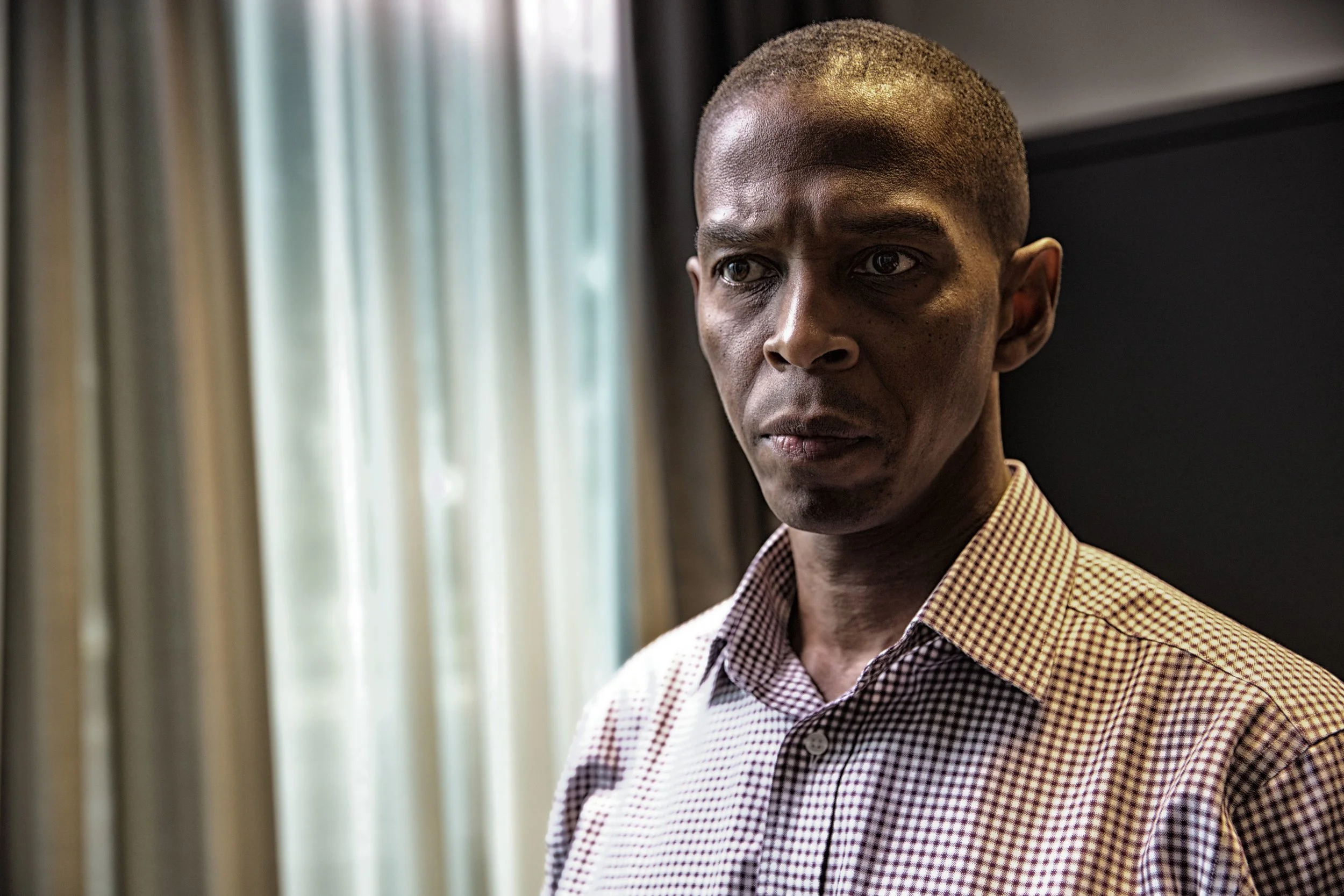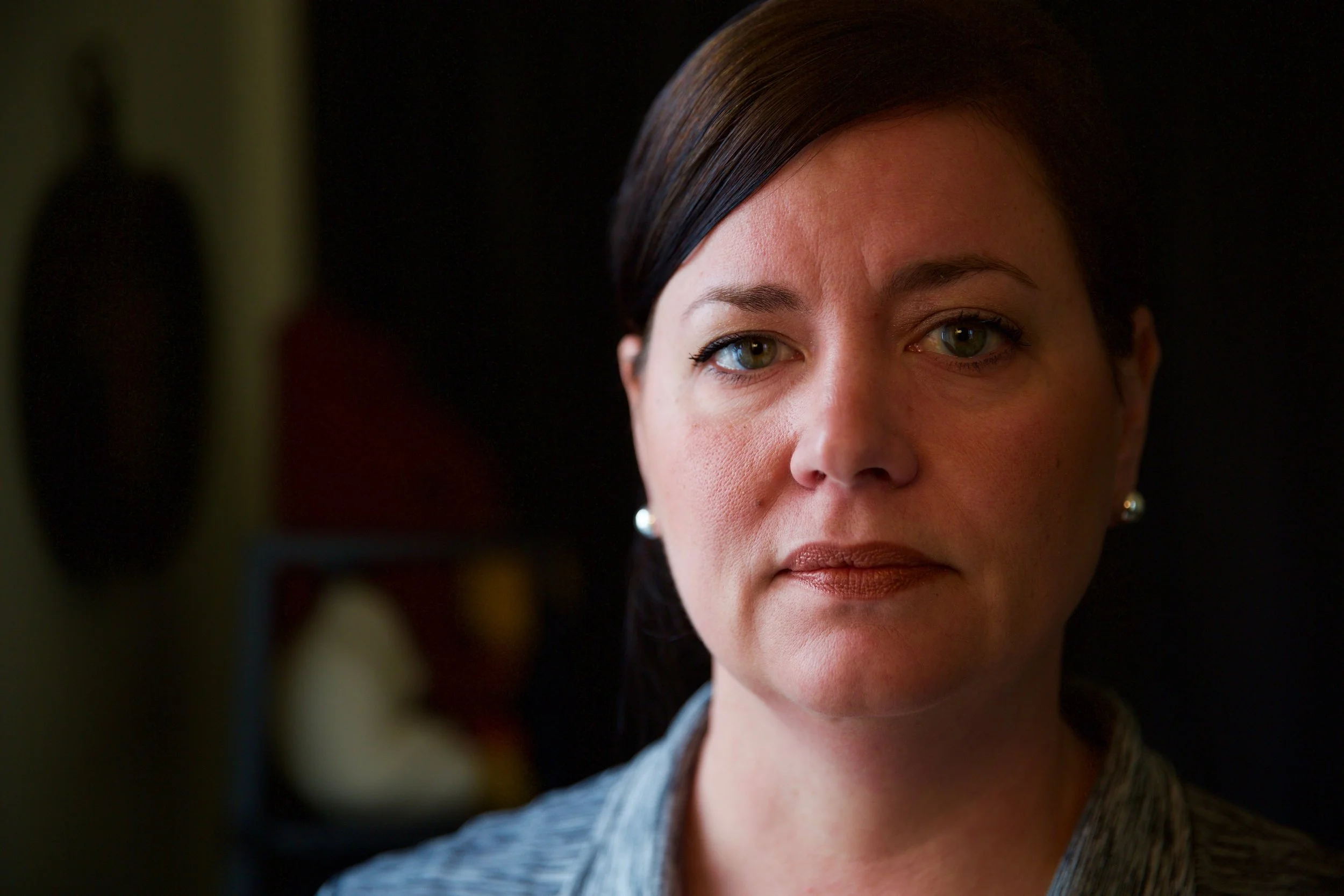Richmond Justice
STORIES + PORTRAITS
Micah | December 23, 2016
Micah "Bam-Bamm" White is a stand-up comedian, entertainment producer, and seminary student at Virginia Union University. He founded and directs RCJC Has Talent, a program offered at the Richmond City Justice Center to prepare residents for release by teaching job and business skills connected to their existing gifts and interests. The program also presents an annual talent show, held inside the jail, celebrating the abilities and potential of all involved.
I grew up in a low-income neighborhood in Birmingham, Alabama, raised by my grandmother. My neighborhood was crime-ridden. What kept me occupied was my dream. That was the difference between me and the people who were getting into trouble. They were out on the corner; I was inside writing jokes. It has taken years for me to see any fruit from all of these seeds I’ve planted. But because I'd found something I loved to do, I always kept going.
“I never did see myself working in a jail. But when the opportunity arose, I had to do it.”
I first connected with the Richmond City Justice Center through a buddy of mine named Barry Moore. His car dealership, Haley Buick GMC, was one of the first sponsors of another project of mine, RVA Has Talent. I was in Barry’s office when he told me he was going to the jail to speak to inmates. I joked with him, “Barry, they don’t want to listen to you!” But I know Barry’s heart; he really cares for people who are less fortunate. He asked me, “Why don’t you come speak with me?” I was like, “I’m down.”
Barry spoke about the interviewing process. I spoke about how to turn your talent into a business while making sure that the money you make goes back into the community. The jail’s program director, Sarah Scarbrough, called a couple of weeks later to ask if I would come and speak again. She had received letters from inmates expressing how much they enjoyed and valued my talk. I thought, hearing a good talk can inspire you in the moment, but that will only get you so far. I suggested that we create a program around the ideas I’d shared. That’s how RCJC Has Talent started up. I’ll be honest: I never did see myself working in a jail. But when the opportunity arose, I had to do it.
We teach brothers and sisters in jail how to write business plans and cover letters. We teach them how to fill out applications and interview. But most importantly, we teach them how to dream. We teach them how to come out of jail and become occupied with pursuing a positive direction for their lives.
Success is not about making money; it’s about how you spend your time. If you find something that occupies you, something that fulfills you and prevents you from doing what you did to get locked up, that’s the win right there. Money is the bonus. What’s most valuable is keeping you off the streets. And it builds self-esteem. It shows you: I can do the good things I desire.
After we started the program, we decided to put on a talent show—inside the jail. That first show was electric. It gave me hope. It humbled me. I’m not a very religious person, but I’m a very spiritual person. And I saw why God had put me in that jail. That show was a moment when all of the inmates forgot they were in jail. The way we feel in one moment creates another moment connected to it. So the more good moments we create now, the more good moments we create later in life. For me, knowing that I had created that moment for all of them, knowing I had created a moment that would pay dividends down the road, that was everything. And the talent was real. They were good!
I’ll tell you the hardest thing I saw in jail. I started teaching these classes in the old jail, before the Richmond City Justice Center opened in the summer of 2015. One day, as I was leaving, a sheriff’s deputy asked me, “Do you want to see the cells?” Every time I taught a class, I walked down a hallway and passed a big door—always closed and locked—that led to the cage. When he opened the door, that was a troubling moment. I could hardly look. Men were penned like animals. It smelled. There can never be rehabilitation in a place like that. I walked out questioning what I was doing: “Am I helping? Can I help?” Part of me said, “You’re beating a dead horse.” Another part of me said, “If there was ever a time to kick into high gear, that time is now. Now you know why you gotta do this.”
“If there was ever a time to kick into high gear, that time is now. Now you know why you gotta do this.”
Not everyone wants to perform. And some people say, “I don’t have a talent.” But we focus on job skills and life skills that you wouldn’t see in a talent show; the chance to perform just pulls some people in. Some brothers want to be barbers. One guy wants to run a shrimp boat. There’s a sister who wants to do hair. We help them to write a basic, two-page business plan. We hope that will trigger the thought: if I can finish this program with a two-page plan, then maybe I’ll write the third, the fourth, the fifth, the sixth page.
We haven’t received any funding whatsoever. But I’m already seeing some success. In June, I had just moved into this house, and the grass was still high. There was a knock on the door. I found a young man who said, “Hey, sir, I could cut your grass for twenty dollars.” Now, I love cutting grass. That’s my moment for solitude—I don’t want anyone taking that away from me! I told him, “No, thank you,” and then I saw him walking away with another brother, one who didn’t come to the door but one who I recognized. I opened back up, called out his name, and he turned around: “Micah!” I asked him what he was doing. “This is my nephew,” he said. “I’m trying to keep him out of trouble by keeping him occupied.” This guy had gone through our program and written a business plan to start a landscaping business. Here he was, trying to make it happen. I told them, “Y’all can cut my grass.”
Can we save everybody? No. But there are some people who need just one more day to sit in front of someone who could help them to manifest their desires. If they have that chance, they will accomplish what they set out to accomplish.
The community will benefit, too. If I can get an individual who's coming out of jail into a job making at least $25,000 a year, then that person will not be leaning on public services to get by. They will be paying taxes. They will be self-sufficient. The community won’t be taking care of them: they’ll be helping to take care of the community.
We’ve got to take responsibility for everyone; we got to stop focusing on ourselves. There’s a lot of old thinking in this town. It's hard to push new ideas. But look at what’s going on in Jackson Ward—great stuff. Look at what’s going on in Church Hill—great stuff. Is there more work to be done? There will always be more work to be done. Our city is only as strong as its weakest links, and we’re starting to see that we have to build from the bottom-up: a top-heavy city will topple. If we can get more Richmond residents to see that, then the sky’s the limit for individuals coming out of jail. And with the new leadership in this city, the spirit and vision of millennials moving here, and an openness to making our city a second-chance city, we might be able to change the system.
The only thing that can stop you is you. And the only way to fail is to stop. That’s what we teach brothers and sisters inside the jail, and that’s what we need to teach our city.
— interviewed December 21, 2016
















